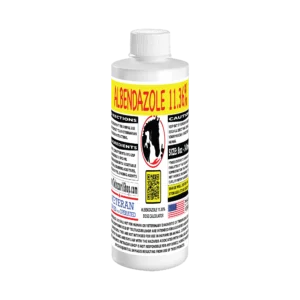-
Animal Products
Albendazole Wormer
$9.95 – $219.95 Select options This product has multiple variants. The options may be chosen on the product pageRated 0 out of 5
Albendazole Wormer
Welcome to Albendazole Wormer, your trusted source for high-quality deworming solutions. Whether you are caring for livestock, pets, or exotic animals, our powerful Albendazole-based formula helps protect against harmful parasites like roundworms, tapeworms, liver flukes, and lungworms.
Why Choose Albendazole Wormer?
At Albendazole Wormer, we believe that keeping your animals healthy should be simple and effective. Our wormer is:
✅ Fast-acting – Works quickly to remove parasites.
✅ Easy to use – Comes in liquid form for hassle-free dosing.
✅ Broad-spectrum – Kills a wide range of worms and parasites.
✅ Safe and effective – Trusted by veterinarians and animal owners.
A Solution Backed by Experience
Our parent website, Toltrazuril Shop, has been a leader in providing reliable solutions for managing animal health. With years of experience in offering high-quality veterinary products, we understand what it takes to keep your animals parasite-free and in great shape.
Effective Deworming for Various Animals
Albendazole Wormer is perfect for:
🐄 Cattle – Protects against liver flukes, roundworms, and tapeworms.
🐑 Sheep & Goats – Eliminates lungworms, liver flukes, and stomach worms.
🐎 Horses – Ensures parasite-free gut health and improved performance.
🐖 Pigs – Controls common internal worms for better growth.
🐕 Dogs & Cats – Keeps household pets safe from intestinal parasites.
🦜 Birds & Reptiles – Can be used under veterinary supervision.
Easy & Convenient to Use
Our liquid formulation makes deworming easy. You can:
🔹 Mix it with food or water for easy consumption.
🔹 Administer directly using a syringe for precise dosing.
🔹 Use different bottle sizes to match your needs (from 1 oz to 1 gallon).
How to Use Albendazole Wormer
📌 Dosage: Always follow veterinary recommendations based on your animal’s weight. A common dose for livestock is 7.5 mg per kg.
📌 Administration: Can be given orally, mixed with feed, or added to water.
📌 Monitor Your Animals: Observe them after dosing to ensure effectiveness.
Safety & Precautions
🚫 Do not use in animals allergic to Albendazole.
🚫 Follow withdrawal periods before consuming milk or meat from treated animals.
🚫 Consult a veterinarian before use for the best results.
Trusted by Farmers, Vets & Pet Owners
Thousands of farmers, veterinarians, and pet owners trust Albendazole Wormer to keep their animals free from harmful parasites. Join them in ensuring the best care for your animals.
🛒 Order Now and give your animals the best protection against worms!
For any questions or assistance, contact us today!
